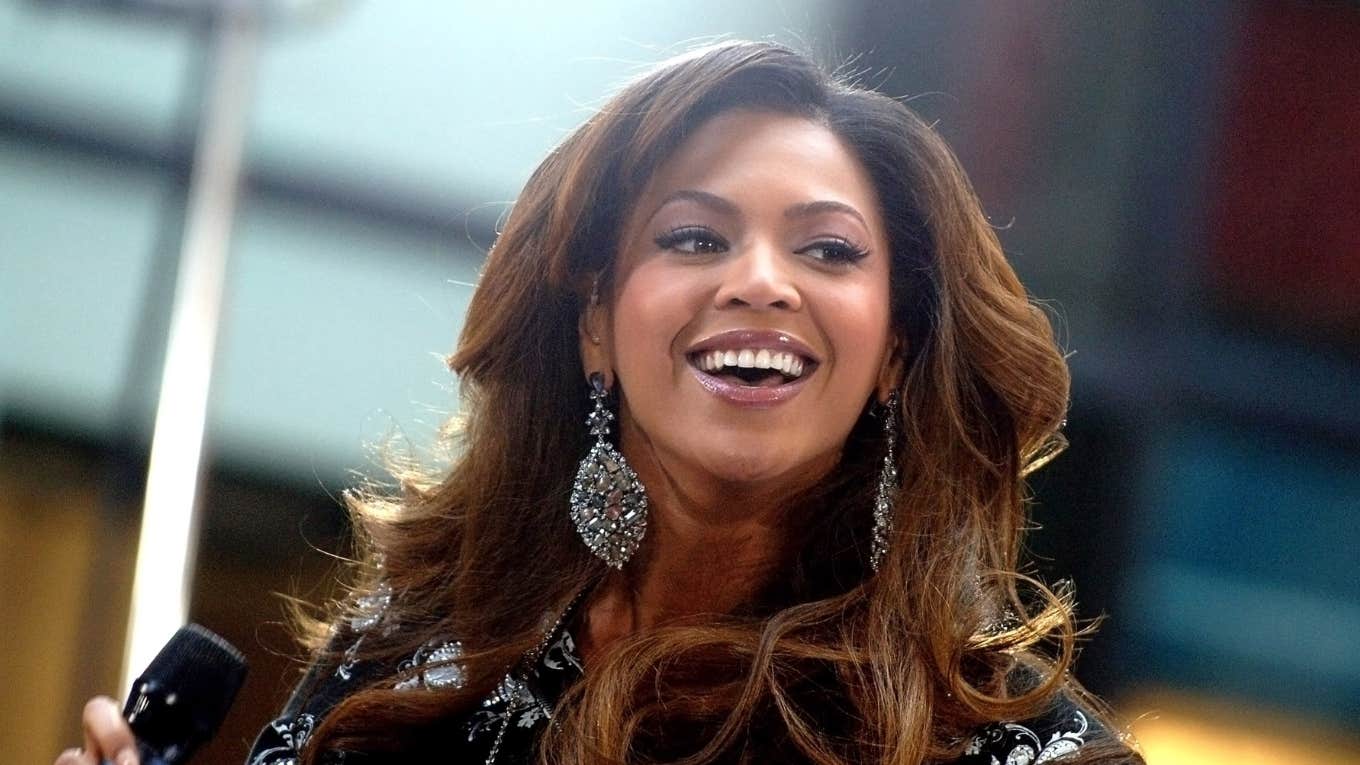Beyoncé Fans Prove Yet Again That The Industry Is Narrow-Minded When It Comes To Her Music
Her upcoming country album isn't sitting right some country music fans, and unfortunately, it has more to do with than just music.
 Everett Collection / Shutterstock
Everett Collection / Shutterstock Beyoncé is finally giving her fans what they've been asking for — ACT II.
During a Super Bowl ad, the "Halo" singer announced that she was dropping new music and posted on her Instagram that the second part of her Reinnassance project would be released on March 29. The two singles she released in preparation for the album were "Texas! Hold 'Em" and "16 Carriages."
It's been long rumored that Beyoncé's second act of Renaissance could be a country album, which was reignited after she showed up to the Grammys earlier this month wearing a cowboy hat.
Famously from Houston, Texas, in the teaser clip Beyoncé shared, she paid homage to Black musicians from the South, including Son House and Chuck Berry. However, there seems to be a bit of backlash stirring from the country world about Beyoncé dipping her toes into the genre.
An Oklahoma radio station initially refused to play Beyoncé's new country song.
A local radio station in Oklahoma was met with criticism and backlash after declining a listener's request to play the singer's new song "Texas Hold 'Em." On February 12, a Twitter user posted a screenshot of the e-mail response he received from KYKC after requesting the song be played.
"We do not play Beyoncé on KYKC as we are a country music station," the station wrote.
The post immediately went viral and Beyoncé's fanbase, the "Beyhive," swarmed the station with more requests for her song, along with accusing the Oklahoma station of holding racial bias toward Beyoncé and other Black country artists.
A few hours later, KYKC posted an image of their show schedule, which showed the song in a 2:28 p.m. time slot. "Lots of calls coming in for Beyoncé's Texas Hold 'Em," the caption said. "It's coming up in minutes."
The radio station attempted to defend its actions, replying to comments explaining that it did not yet have access to the new song, and claimed that local listeners "did not really want us to play it."
People in the comments were ablaze with fury, pointing out that radio stations play different kinds of music all of the time, including R&B stations playing artists like Adele, Justin Bieber, and Selena Gomez with no issue or problem.
Beyoncé fans have once again proven how narrow-minded the industry is when it comes to her music.
The argument that Beyoncé doesn't make "real country music," or she shouldn't be put in the same category as other country artists because this is her first venture into the genre, is both tone-deaf and rooted in racism.
Beyoncé's upcoming project isn't country-inspired or influenced, but a purely country album. With Renaissance: Act One, Beyoncé clearly paid homage to Black house music, and will be doing the same with Black country artists for Act Two.
The country music industry is already extremely exclusionary to Black artists, despite those same Black artists being at the root of the genre's inception, along with many other genres.
Black women have a deep and rich history when it comes to country music. Black people are said to have brought their banjos (and the knowledge of how to make them) with them during the Middle Passage, and the first string band performers were enslaved people, according to PBS.
Some of the erasure of this history dates back to the 1920s when recorded music was segregated, and genres like country and western music were marketed specifically to white audiences, while blues and jazz music were marketed toward Black people.
That segregation of country music clearly still exists today, despite artists like Tina Turner, with her hit "Nutbush City Limits," and other Black female artists in soul and R&B who have recorded country music.
This isn't the first time Beyoncé has faced criticism from country fans.
In 2016, she performed alongside the Dixie Chicks at the Country Music Awards, and the riveting performance was met with displeasure from viewers whose sentiment was due to Beyoncé's left-leaning politics, her perceived lack of country props, and, of course, downright racism.
The reaction was only made worse after the CMA erased a promotional social media post featuring Beyoncé and the Dixie Chicks performance, claiming that it was because the footage wasn't approved for release, but the organization successfully bent to the opinions of conservatives and racists who were upset about a Black woman appearing on the stage of the Country Music Awards.
Beyoncé's upcoming venture into country music is something she's doing for her own culture — for Black people and artists who've been shunned from the genre by white conservatives and racists. She does it for the community, for the people.
Ahead of the release of Renaissance: Act One, Beyoncé shared a message on her website to explain that the album would be a three-part project. She emphasized that the project's sole mission was to create a safe and compassionate place for her fans.
"Creating this album allowed me a place to dream and to find escape during a scary time for the world," she wrote. "It allowed me to feel free and adventurous in a time when little else was moving. My intention was to create a safe place, a place without judgment. A place to be free of perfectionism and overthinking. A place to scream, release, feel freedom. It was a beautiful journey of exploration."
Nia Tipton is a Chicago-based entertainment, news, and lifestyle writer whose work delves into modern-day issues and experiences.

